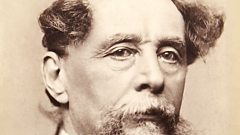Déjà Vu
Is déjà vu a brain glitch, something triggered by the broader environment or a more mystical phenomenon. Bridget Kendall talks to cognitive neuropsychologist Chris Moulin, cognitive psychologist Anne Cleary and novelist and academic Chigozie Obioma.
Last on
Clip
-
![]()
How literature has helped scientists explain déjà vu
Duration: 01:07
Chapters
-
Chris Moulin
Is déjà vu a glitch in brain? Chris Moulin thinks it is.
Duration: 07:17
Anne Cleary
How memory can be an important component of déjà vu
Duration: 12:02
60 Second Idea (Chris Moulin)
Remembering the dead. A kind of ‚Äėfacebook‚Äô for loved ones who‚Äôve passed away.
Duration: 03:16
Chigozie Obioma
How déjà vu is important in literature and some African societies.
Duration: 14:43
Chris Moulin
![Chris Moulin]()
Dr Chris Moulin is a cognitive neuropsychologist at the Université de Bourgogne, Dijon, France. He researches the science of déjà vu. 
"D√©j√† vu is a fault in a kind of cognitive process that is going on in the background all the time. When it goes wrong, it's very striking," says Moulin. ‚ÄúAt the extreme, patients with permanent d√©j√† vu - dubbed d√©j√† v√©cu, for already experienced - actually make up stories to make sense of it‚ÄĚ.
He believes that déjà vu is caused not by genuine memories but erroneous activity in the brain.
Anne Cleary
![Anne Cleary]()
Anne Cleary is a Professor of Cognitive Psychology at the Colorado State University.
Anne thinks that d√©j√† vu has environmental influences‚ÄĒthat is, external situations that trigger a reaction in the brain, and that genuine (not just false) memories and familiarity play a big part in its makeup.
Chigozie Obioma
![Chigozie Obioma]()
Chigozie Obioma was born in Nigeria. He now lives in the United States where he is a Fiction Fellow at the University of Michigan.
His novel ‚ÄėThe Fisherman‚Äô is told from the point of view of nine-year-old Benjamin, the youngest of four brothers. The book is the Cain and Abel-esque story of a childhood in 1990s Nigeria and deals with themes of familiarity, repetition and memory.
Chigozie is interested in deja vu both as a writer and from the perspective of his Nigerian heritage.
Sixty Second Idea to Change the World
Chris Moulin wants to preserve memories of friends and family.
‚ÄėWe have long thought that memory is the storehouse of our identity: we¬†are¬†our memory. But what about other people‚Äôs lives? ¬†How do we best remember somebody else? This question is never more important than for our friends and family who have died. ¬†I think that memory research and technology has a lot to contribute to how we can better remember someone else‚Äô.¬†
Broadcasts
- Mon 30 Mar 2015 01:05GMT¬ť∂Ļ…Á World Service Online
- Tue 31 Mar 2015 08:05GMT¬ť∂Ļ…Á World Service Online
Do you use US dollars even though they are not your country’s official currency?
Podcast
-
![]()
The Forum
The programme that explains the present by exploring the past







